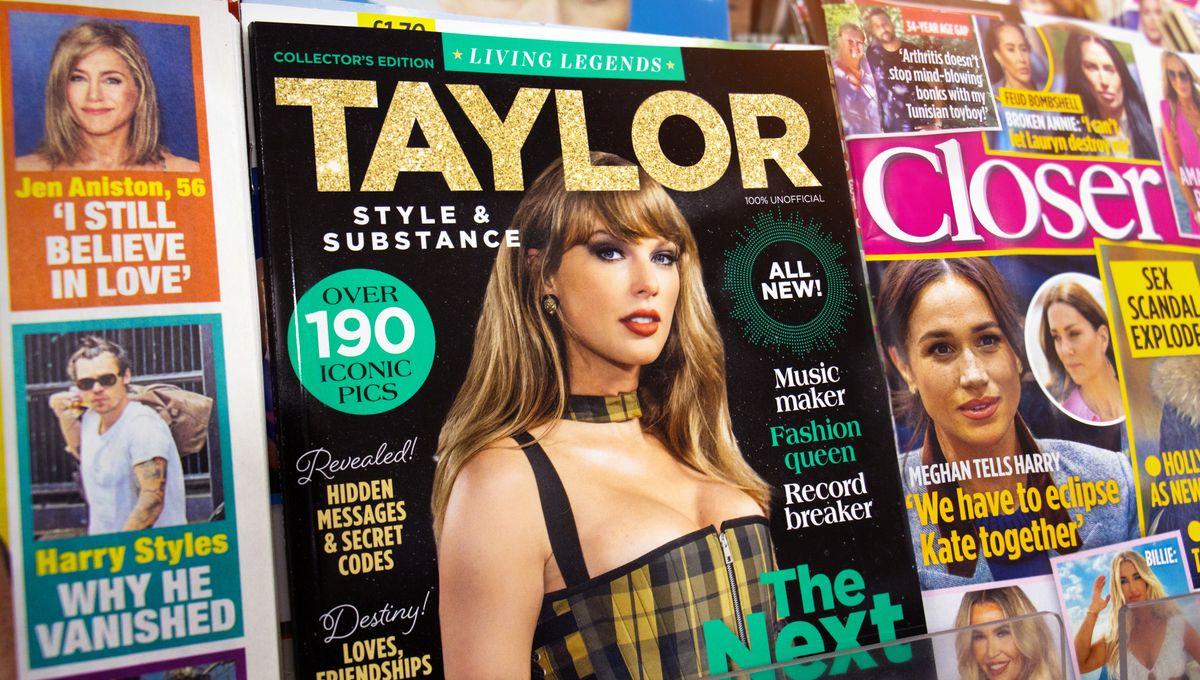-
Новости
- ИССЛЕДОВАТЬ
-
Страницы
-
Статьи пользователей
-
Форумы
“Parasocial” Announced As Word Of The Year 2025 – Does It Describe You? And Is It Even Healthy?

“Parasocial” Announced As Word Of The Year 2025 – Does It Describe You? And Is It Even Healthy?
It’s that time of year again, when the Cambridge Dictionary announces the word that it feels best defines the last 12 months. For 2025, the winner is, drumroll please… parasocial.
The rest of this article is behind a paywall. Please sign in or subscribe to access the full content. Just as we eagerly anticipate the annual arrival of our Spotify Wrapped, we always look forward to these Word of the Year announcements. But the prevailing reaction here at IFLScience when we learned that “parasocial” had come out on top was one of surprise – surely it must have been crowned Word of the Year before now? Parasociality is, in many ways, a defining concept of this millennium so far, never mind the last year or two. In case you’re not totally familiar, here’s the Cambridge Dictionary’s definition of the adjective “parasocial”: involving or relating to a connection that someone feels between themselves and a famous person they do not know, a character in a book, film, TV series, etc., or an artificial intelligence. Reading that, you might be feeling a twinge of familiarity, even if you’ve never used the term to describe yourself before. Many people will have a book, movie, or TV character they identify strongly with, or have secretly wished they could meet in real life. Such feelings might also extend to actors who have portrayed our favorite characters, or reality TV stars – pretty much anyone in the public eye. With the rise of vloggers, YouTubers, and social media influencers, we are invited into the lives of other people in an unprecedented way. Do you have a creator whose uploads you never want to miss? Are you disappointed – even a tiny bit – when their new video doesn’t drop on schedule? And what about the distinctly 2020s bit at the end of the definition there? Generative AI chatbots like ChatGPT have become so much a part of some people’s routine that some scientists believe they’re affecting our speech patterns. People have described their preferred AI as being like a “friend” or even – more chillingly – a “therapist”. But a bot is incapable of reciprocating any of these feelings. Pretty textbook parasocial relationship right there. “Parasocial captures the 2025 zeitgeist,” said Colin McIntosh of the Cambridge Dictionary in a statement. “It's a great example of how language changes. What was once a specialist academic term has become mainstream. Millions of people are engaged in parasocial relationships; many more are simply intrigued by their rise.” This is proven by the spike in searches for “parasocial” on the Cambridge Dictionary website, which is what put the term in the running for Word of the Year. One of the major 2025 viral moments that had people looking up the word was when Taylor Swift announced her engagement to Travis Kelce; the responses of many fans demonstrated that they felt a deeper connection to the singer than mere admiration for her talent, which psychologists explain as a parasocial relationship. But during that moment, and other viral parasociality moments before and since, many have taken the opportunity to voice their concerns about whether these relationships are really healthy. People have blamed parasocial relationships in cases where fans have overstepped boundaries with celebrities, crossing over into behaviors that can become intimidating, uncomfortable, or even bordering on stalking. “When an influencer has so many followers, people assume they are trustworthy,” said University of Cambridge Professor of Experimental Social Psychology Simone Schnall. “This leads to a sense that people ‘know’ those they form parasocial bonds with, can trust them and even to extreme forms of loyalty. Yet it’s completely one sided.” One study found that the grief people feel at the breakup of a parasocial relationship can be just as devastating as real relationship breakdowns, sometimes leading to unhealthy coping strategies like substance use. Case reports in the literature provide stark examples of this. But parasocial relationships are not exclusively a bad thing. One author of a recent study of over 1,000 people described parasocial relationships as “an important part of our psychological toolbox”, finding that even these one-sided relationships could help people feel more emotionally fulfilled. Things become murkier when we consider parasocial relationships with AI. The world is still grappling with the roles that generative AI will play in society, but there are already examples of negative consequences from following ChatGPT’s advice on medical matters (not something we recommend), and concerns around the impact of becoming over-reliant on this technology. While the term dates back to 1956 and the rise of television, parasociality is arguably a timelier topic now than ever before. So, on balance, we’d have to agree that it was a good candidate for Word of the Year (as well as being somewhat grateful that we didn’t have to write a whole article on the word “slop”).


